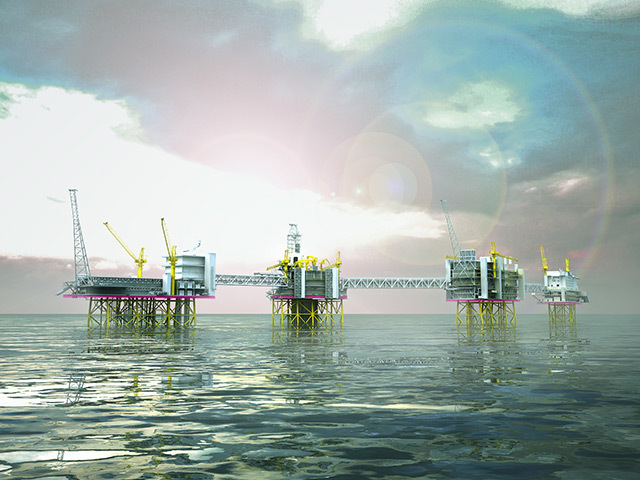
The partners behind plans to develop a giant North Sea oil field have revealed their preferred approach – which will see the field produce more than 500,000 barrels of oil equivalent per day.
The Johan Sverdrup field, on the Norwegian shelf, is expected to contribute up to a quarter of the country’s entire oil output once fully operational.
The companies involved, including Lundin Petroleum, Statoil, Maersk, state oil firm Petoro and Maersk, will invest more than £11billion to develop the first phase of the project.
“The development of this field will be one of the largest project undertakings in the North Sea since the 1980s,” said Lundin chief executive Ashley Heppenstall.
“The quality, size and location of this field are a unique combination…It is often quoted in the oil industry that big oil fields get bigger and we certainly believe that this will be the case for Johan Sverdrup.”
The field, around 140km west of Stavanger, is hought to contain up to 3billion barrels of oil and will have a lifespan of 50 years.
The companies involved have decided to go-ahead with a system to provide power for the field’s development from onshore Norway following months of debate on the best solution to power the operations. Alternative solutions will be looked at for later phases as the operators look to cut CO2 emissions from the area.
Four installations will be phased into the field, with the first phase producing around 315,000 barrels of oil once production starts in late 2019.
A process platform, drilling platform, riser and living quarters will be built on the field, in water of around 120m, with the steel jacket installations being linked by bridges.
Oil will be transported through new pipelines to the Mongstad terminal, while gas will be taken to the Kårstø facility for processing, with the developers aiming to achieve a high recovery rate from the field.
“On the Norwegian Continental Shelf a number of the larger mature fields are achieving recovery factors at or exceeding 70 percent and it will be the objective to achieve similar results for Johan Sverdrup.”
The cost of future phases of the project is still to be negotiated by the firms involved, although the project designs have met with approval by the partners.
Maersk Oil managing director Morten Jeppensen said the eyes of the world would be on the Sverdrup project as a flagship for the industry.
“Our primary focus is to unlock the maximum potential from the full field both in the near and longer term,” he said.
“This will bring benefits to all partners involved in the project and Norwegian society more broadly.”
Final plans for the project will be submitted to the Norwegian government for approval, with the go-ahead expected to come for the project next year.
